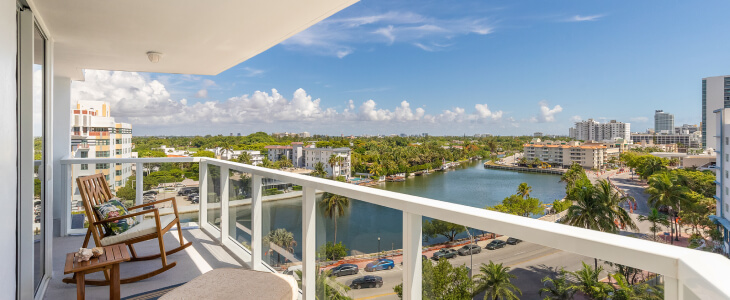When a nonresident dies in Florida but owns property in the Sunshine State, the main probate process will likely be opened in the state he or she resided upon passing away. However, since probate is governed at the state level, that means you must handle probate proceedings in every state where the decedent had real property—and Florida is no exception. Learn what this “ancillary administration” process entails and how our legal experts can help.
What is Ancillary Administration in Florida? – The Basics
Ancillary administration is a type of probate that occurs when an out-of-state resident dies while owning property located in Florida.
As provided by Florida law (Fla. Stat. §734.102(1)), “if a nonresident of this state dies leaving assets in this state, (…) a personal representative specifically designated in the decedent’s will to administer the Florida property shall be entitled to have ancillary letters issued, if qualified to act in Florida.”
In other words, if you are named as a personal representative (i.e., executor) in the decedent’s Last Will and Testament, you will be entitled to receive “letters” of administration from a Florida probate court, which give you permission to access and manage the estate.
The Florida statutes also provides that “if the foreign personal representative is not qualified to act in Florida and the will names an alternate or successor who is qualified to act in Florida, the alternate or successor shall be entitled to have letters issued.”
Florida requires that ancillary proceedings be carried out by either a blood relative of the decedent or a Florida resident. Therefore, if the personal representative is a nonresident friend, they will not be qualified to handle the probate proceedings in Florida.
Likewise, Florida law provides that if no person is named as personal representative to execute the decedent’s will in Florida, a qualified person will be appointed by the court to fulfill the role.
If a nonresident dies in Florida without a valid Will (i.e., intestate), the situation is a bit more complicated. In such a case, the Florida personal representative will be named according to the order of preference outlined by Chapter 733, Florida Statutes (beginning with the surviving spouse, followed by whoever is selected by a majority of those with an interest in the estate, and so on).
Florida Ancillary Administration – How Does it Affect the Decedent’s Creditors?
It is crucial to note that ancillary administration applies only to probate assets within a decedent’s estate, which does not include creditors’ assets.
Hence, if the nonresident died while owing money to a creditor in Florida or another state, that creditor can still file claims in both the primary probate process and the ancillary administration.
Bear in mind that there is no need for ancillary probate administration if the decedent only owes money to Florida creditors but does not own property in the state.
Florida Ancillary Administration – Real World Cases
Florida Statute §734.102(2) provides that “ancillary administration shall be commenced as provided by the Florida Probate Rules.” In other words, state law outlines what assets qualify for ancillary probate proceedings and how the process must be carried out.
The most common type of asset involved in ancillary administration cases is real estate, including residential homes, investment properties, and commercial properties. Additionally, vehicles may also qualify for ancillary probate, depending on their value and other circumstances of the case.
Yet, other types of assets you may not expect may require ancillary administration as well. For example, if the decedent loaned to someone in Florida and was still receiving payments on the loan at the time of his or her death, the loan itself will be considered an asset subject to probate. Hence, under ancillary administration, the loan will be transferred to a beneficiary in accordance with the decedent’s Will or intestacy laws in the decedent’s primary state of residence. A boat or a mobile home titled in Florida might also require ancillary probate, depending on the circumstances.
Need Assistance with Ancillary Administration in Florida? – Contact Us Immediately
As you may have noticed, there are many variables impacting ancillary administration in Florida, particularly with respect to determining what assets are affected. Handling one probate case in the home state is enough work and responsibility without juggling another proceeding in a different jurisdiction with different rules and requirements.
Fortunately, you will not have to go it alone. The probate attorneys at Farshchian Law are well versed in every form of probate, including Ancillary Administration. We understand the process and requirements as well as the ever-changing laws and regulations. We will help you navigate every step of the way to make the process as efficient and smooth as possible.
To schedule a free consultation or learn more about our probate services, call us at (800) 604-1871, or email us using our secure online contact form. We handle probate, real estate, and estate planning matters throughout the State of Florida.

